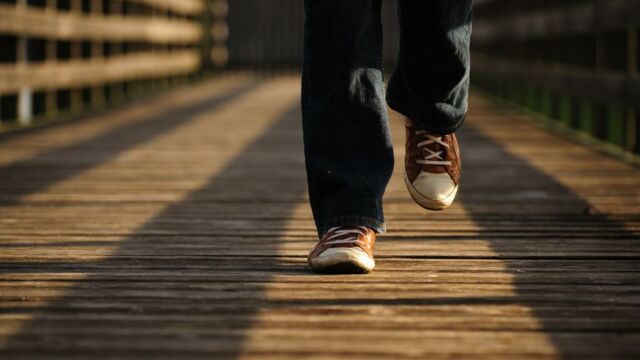As if slow walkers didn't receive enough flak as it was for, well, being slow walkers, a new study has just revealed that they are four times likelier to die from COVID-19.
Discover our latest podcast
The slower you walk the likelier you are of dying?
The Leicester-based research looked into the walking habits of 400,000 participants to determine if there was a correlation between those who walk slower and those who react more severely to the coronavirus. And it appears that compared to regular and fast-paced walkers the slower pedestrians are likelier to develop more serious complications to the virus that are likelier to lead to death.
The National Institute for Health Research (NIHR) Leicester Biomedical Research Centre determined that in order to look for this potential correlation they had to draw connections with the participants Body Mass Index (BMI) and their self-reported walking pace.
To determine what category someone would fall into, they established that a slow walker is someone who walks less than three miles per hour. An average-paced walker moves at about three to four miles per hour and finally a fast-paced walker in anyone who walks above four miles per hour.
Someon'e BMI is an important factor in how they will react to COVID-19
Once their BMIs were calculated and their walking pace determined, results showed that slow-paced walkers were 2.5 times likelier to develop severe symptoms and require hospitalisation and this ratio only increased as the participants BMI got higher.
Dr. Tom Yates, lead researcher and specialist in physical activity, sedentary behaviour and health at the University of Leicester, explained that:
We know already that obesity and frailty are key risk factors for Covid-19 outcomes.This is the first study to show that slow walkers have a much higher risk of contracting severe Covid-19 outcomes, irrespective of their weight.
And added:
Ongoing public health and research surveillance studies should consider incorporating simple measures of physical fitness such as self-reported walking pace in addition to BMI, as potential risk predictors of Covid-19 outcomes.















